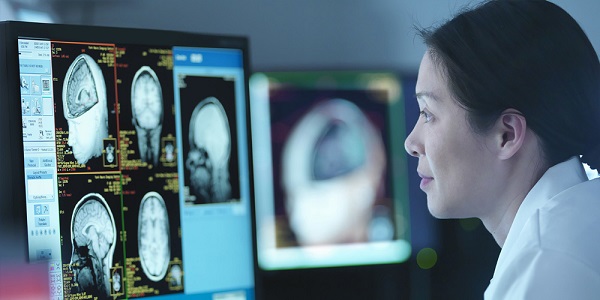Microsoft and Leading Medical Institutions Join Forces to Revolutionize Radiology with AI

Microsoft is further advancing its efforts in healthcare AI by collaborating with Mass General Brigham, the University of Wisconsin School of Medicine and Public Health, and UW Health to advance AI models for radiology.
The goal of the collaboration is to enhance radiologists’ experiences and contribute to better patient outcomes through advanced radiology-focused multimodal AI foundation models and medical imaging copilot applications.
Microsoft and the partner health systems will work to develop, test, and validate AI algorithms and applications. The AI models will be built on top of the robust Microsoft Azure AI platform and integrated with Nuance’s Powerscribe radiology reporting platform, widely used by U.S. radiologists, and Nuance’s Precision Imaging Network.
 Medical imaging plays a key role in the healthcare industry. A study by the Health Affairs Scholar found that spending on imaging increased 35.9% between 2010 and 2021. An earlier study by JAMA estimated that the US health system spends $65 billion annually on imaging.
Medical imaging plays a key role in the healthcare industry. A study by the Health Affairs Scholar found that spending on imaging increased 35.9% between 2010 and 2021. An earlier study by JAMA estimated that the US health system spends $65 billion annually on imaging.
Along with the increasing costs, the healthcare industry is grappling with a rise in physician burnout and staffing shortages. This has led to many health systems exploring GenAI as a tool to help reduce workloads and improve efficiency through more accurate and consistent medical image analysis.
“Generative AI has transformative potential to overcome traditional barriers in AI product development and to accelerate the impact of these technologies on clinical care. As healthcare leaders, we need to carefully and responsibly develop and evaluate such tools to ensure high-quality care is in no way compromised,” said Keith J. Dreyer, D.O., Ph.D., chief data science officer and chief imaging officer at Mass General Brigham and leader of the Mass General Brigham AI business.
According to Dreyer, fine-tuning foundation models on Mass General Brigham’s vast multimodal longitudinal data assets can expedite the development of AI/ML-based software and clinical applications. This approach can automate the segmentation of organs and abnormalities in medical imaging, helping boost radiologists' consistency and efficiency.
A key objective of the collaboration is to explore how AI models can help radiologists and other clinicians efficiently interpret medical images, generate reports, analyze data, and perform disease classification.
As AI technologies make further inroads into the healthcare industry, there is an increased responsibility to uphold patient privacy and adhere to ethical guidelines. Microsoft is committed to protecting patient privacy and ethical standards by adhering to its Responsible AI Principles and ensuring its AI systems are developed and deployed with integrity and transparency.
 Microsoft's collaboration with medical institutions comes at a time when the healthcare industry is witnessing rapid advancements in GenAI. DeepMind’s AlphaFold has made significant strides in predicting protein structures, which are essential for understanding biological processes and disease mechanisms.
Microsoft's collaboration with medical institutions comes at a time when the healthcare industry is witnessing rapid advancements in GenAI. DeepMind’s AlphaFold has made significant strides in predicting protein structures, which are essential for understanding biological processes and disease mechanisms.
Tempus Labs is leveraging GenAI to transform oncology through its advanced data-driven solutions. Integrating sophisticated AI algorithms with clinic and genomic data, Tempus Labs aims to enhance cancer diagnosis and treatment.
Microsoft is working with NVIDIA to advance the use of GenAI and cloud computing. The two tech giants are working on integrating Microsoft Azure with Nvidia’s DGX Cloud, Clara suite, and MONAI tools to develop and deploy AI models at scale, improve diagnostic technology, and increase access to precision medicine.
Related Items
The Future of Healthcare is Data-driven
OpenAI and Microsoft Plan $100 Billion ‘Stargate’ Data Center in the U.S.
Delivering on the promise of AI: Microsoft and NVIDIA











